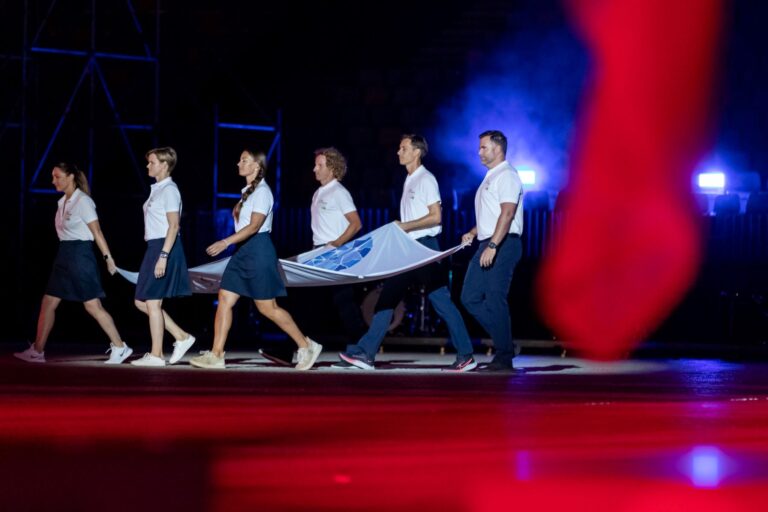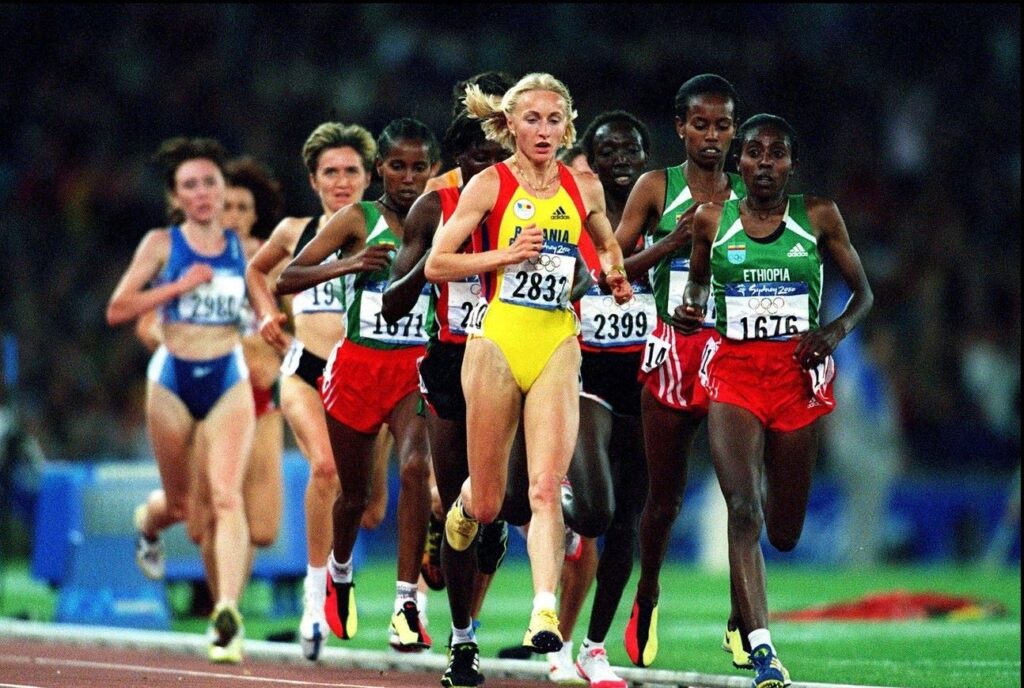The European Youth Olympic Festival (EYOF), held this week in Maribor, Slovenia, sparks the Olympic spirit among many young athletes. Discover the Games spoke with three medalists from the very first EYOF 1991 in Brussels, Belgium. Athlete Gabriela Szabo, who would become one of Romania’s most successful athletes ever. And swimmers Mariska van Essen (then: Van Harn) and Chong-Woo Chiang, who turned out not to be cut out for a career at the highest level. Stories about fun, success, performance, pressure, (not) having and (not) achieving an Olympic dream. And that it’s okay if the dream doesn’t come true.
Chong-Woo Chiang remembers watching the 2000 Sydney Olympics on television. Jens Kruppa swam with the German team to the bronze medal in the 4×100 meter medley. “That guy was also there in 1991, at the EYOF in Brussels. ‘He wins an Olympic medal and I don’t’. That was a thought that came to my mind, yes. And I had a really hard time with that. It started to gnaw, because I felt like I could have achieved that too. I took that with me for a long time and I really had to give that feeling a place in my life.”

At the age of 15, Chiang took the bronze in the 100-meter breaststroke at the EYOF in 1991 in Brussels, Belgium. “It was a huge event. I especially enjoyed participating in such an international tournament with all kinds of different sports. It was a stepping stone to more major tournaments. After that I also participated in international youth tournaments, I really did have the ambition to become a top swimmer. But when I turned 18 or 19, things turned out differently. I went to another club that was falling apart and I slowly leaned into another life. Less of a life in top sports, an occasional beer. I tried later for a comeback, but it didn’t work. Too bad, yes. But like I said: I can cope with it now, it’s alright.”
Gabriela Szabo
Perhaps Chiang saw on television the Romanian Gabriela Szabo at that same Olympics as well, reaching the gold medal in track and field on the 5000 meters. Her incredible succesfull international career started at that same EYOF in Brussels. From that year on, she won medals every year, with three Olympic medals and eight world titles being some of her highlights. “I can hardly believe it when I look back now!” she says. “The two factors that kept me going until 2004 are fun and patience.”
“I also won gold at the European Youth Championship later that year and was selected for the Olympic Games in Barcelona in 1992, but my coach put a stop to that. He discovered me when I was thirteen years old and slowly molded me into the athlete I became. Back then he said I was too young to go to the Games. A wise lesson, which I accepted. It’s important to take your time, to be careful. A young athlete should not be pushed too much. It’s about the fun, always. Even at a later age, when you become very good.”

Szabo was there at the 1996 Olympics. In Atlanta the pressure suddenly overtook the fun. Szabo partially collapsed under the pressure. “Everyone said that I was going to win, that I was so good, all those stories also appeared in the media. That pressure was too much for me. I didn’t make it to the final. Then I learned to deal with it. I took bronze in the 1500 meters and four years later, of course, gold in the 5000 in Sydney. Together with the 1997 World Cup when I won the first outdoor gold medal for Romania, that is of course the highlight of my career.”
Physical activity
Szabo emphasizes that events like the EYOF can be important for young athletes. “We have to communicate with the children of today. About how important sport is. It’s not just about winning and performing, but also to be physical active. 63% of the population in Romania is inactive,” says Szabo, who became minister for youth and sports after her sports career. “That’s really not good. My goal these days is to spread the word about the importance of exercising. And if you’re good at it, you need good coaches to try and take you to the top. With patience. Everything you sow now, will only come out years later in sports. And young people have that choice, they don’t have to become top athletes.”
Too sweet
Proof of this is Mariska van Essen, a Dutch swimmer who won gold at the EYOF in 1991 in the 200 meter individual medley. She was twelve years old. “I found it especially exciting at the time. I don’t remember much about it. Except that I suddenly had to go to a doping test, something I had never experienced before. That still stuck in my memory.” Van Essen (then Van Harn) liked swimming, trained a lot as a child, but didn’t have that fierce determination to do whatever it takes to achieve a successful swimming career. “I was too nice, not selfish enough, others often said. I was not like other girls that were much tougher than me. I didn’t want to be like that at all. I sometimes saw parents who scolded their 15-year-old child because, in their eyes, they had not performed well. I found that really hard to watch.”
In addition to the soft character, the fear of failure also got in the way of Van Essen. “I did have some sort of fear to perform, yes. It’s not good if you’re throwing up in the bathroom before a normal race. When I won gold, like at the EYOF, I started to see the headlines if I didn’t win a match after that. ‘Golden swimmer sinks’, something like that. I filled in the headlines in the papers myself. With better guidance, things could have turned out differently, but I never really pursued a life in top sports. I have absolutely no regrets that I did not become a top swimmer among the seniors. When I turned 17 or 18 I met my current husband and started living a normal life. I’m perfectly happy with that choice!”